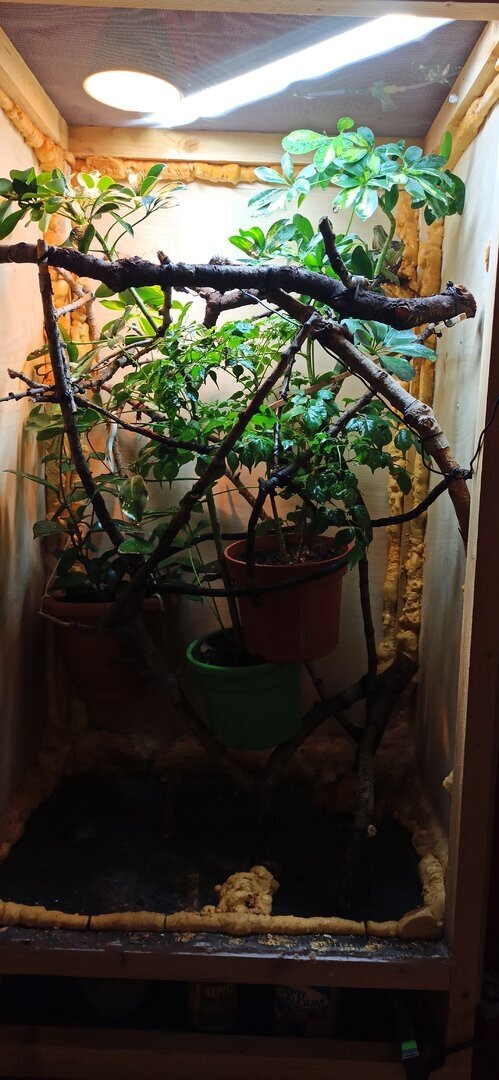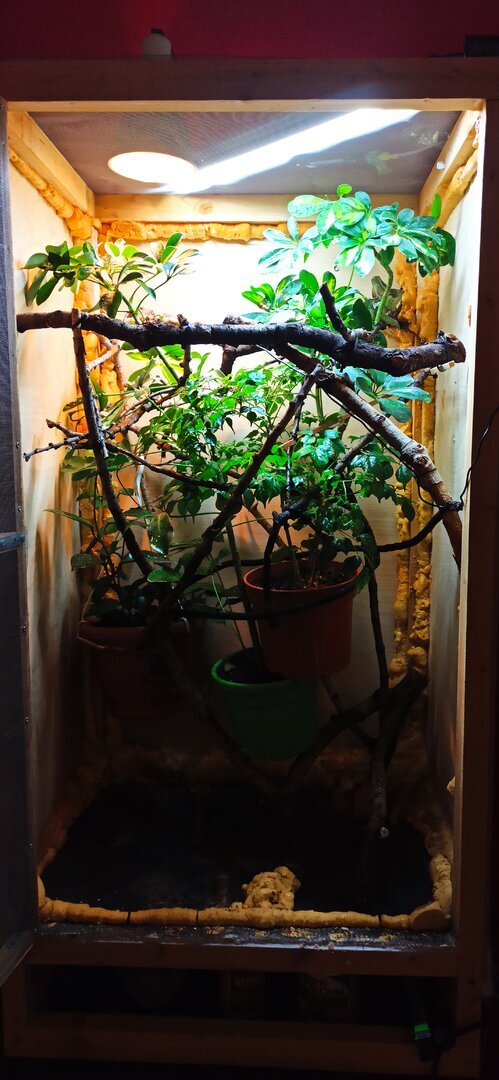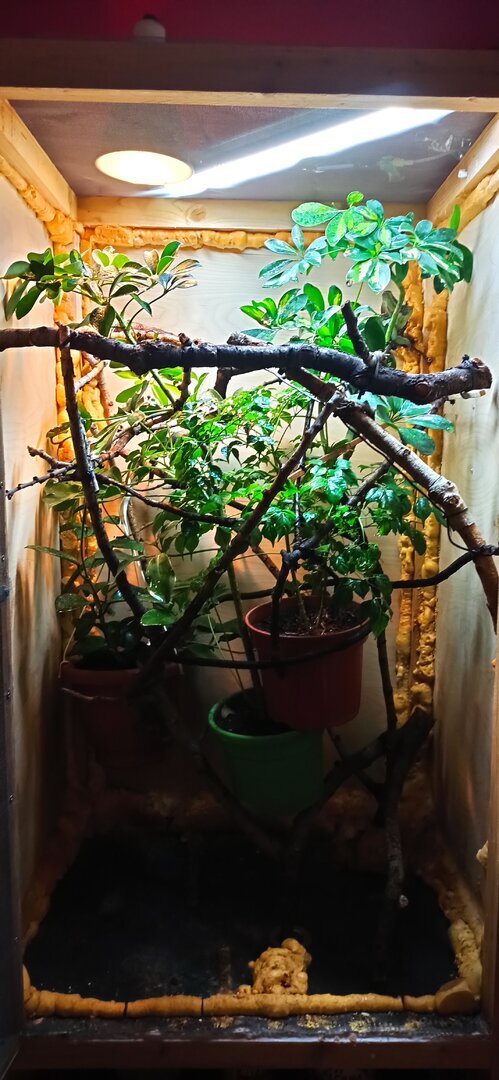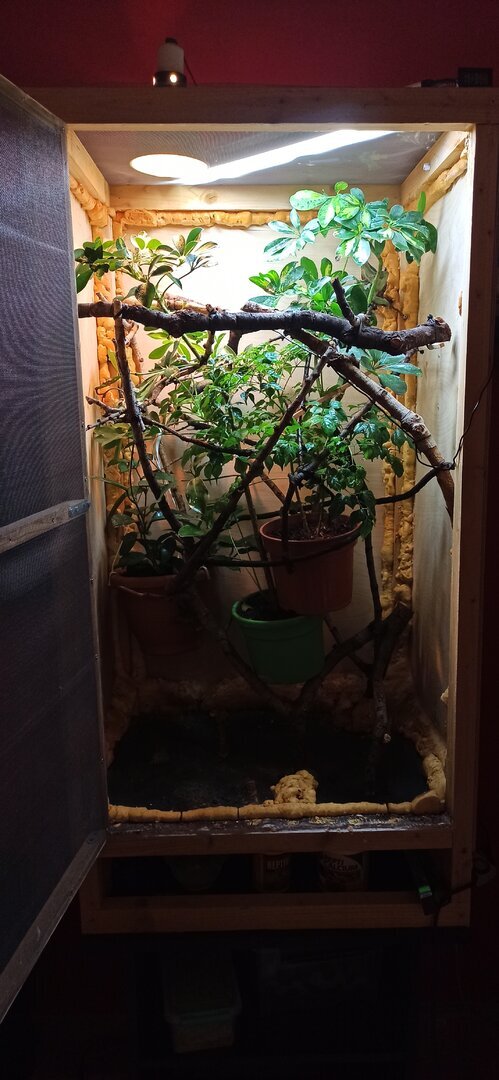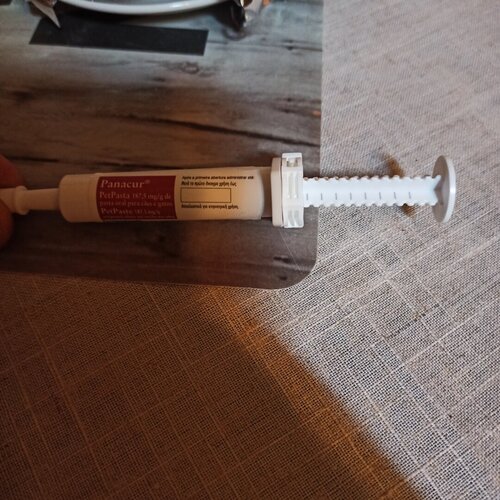Navigation
Install the app
How to install the app on iOS
Follow along with the video below to see how to install our site as a web app on your home screen.
Note: This feature may not be available in some browsers.
More options
You are using an out of date browser. It may not display this or other websites correctly.
You should upgrade or use an alternative browser.
You should upgrade or use an alternative browser.
veiled eyes problem--hes eating only morio nothing else.
- Thread starter takisxx
- Start date
Let me know if you start seeing an improvement in the next few weeks. I would expect appetite to get better if it is related to the former supplement.Thanks you so much @Beman for your time.
Add some more plants so it jump starts and stimulates him through his environment. If you can find the taller centerpiece plants these work really well in a large enclosure.
If you have any questions tag me in this thread.
looks much better! Hopefully the new plant and change to his environment will perk him up a bit. At this age I would expect him to be eating only 3 days a week with 3 feeders at each feeding. Try only offering food on these 3 days. If you have been offering food everyday then switching may help him with his lack of appetite as well.@Beman hello again!
today I took another plant and put it in so now i have 3 different plants(pothos died) umbrella plant, china doll and hoya(wax plant),take a look!
bbyoda
Chameleon Enthusiast
@Beman Yesterday i took him to the vet with his fecal in bottle and we found that chameleon was full of parasites...i let him with this problem over 5 months...(so im an idiot)so doc gives me medicine for 5 days and then we test fecal again...
Ah, sorry to hear that. That's why we always suggest doing fecals. Which parasite and which medicine? Different ones require different strategies to avoid reinfection.
bbyoda
Chameleon Enthusiast
Call and ask to confirm - panacur can be used for different parasites, but if he has cocidia then you basically need to get all new plants soil etc in your enclosure. If it's pinworms, you wouldn't really need to do that.Doc doesnt named the parasite,but he give me this medicine : panacur pasta.he told me there is so many parasites in his stomach and yold me to give this for 5 days and then we will do again fecal test.
takisxx
Member
Thanks for this info didnt know it. i will ask the doc and i feedback!Call and ask to confirm - panacur can be used for different parasites, but if he has cocidia then you basically need to get all new plants soil etc in your enclosure. If it's pinworms, you wouldn't really need to do that.
bbyoda
Chameleon Enthusiast
That's what we're here for! Spread the knowledge!Thanks for this info didnt know it. i will ask the doc and i feedback!
MissSkittles
Chameleon Enthusiast
Found this thru Google.
Roundworms that can infect reptiles include Ascaris species, Strongyloides species and Kalicephalus (hookworm) species. Lizards seem most prone to picking up roundworms, although snakes are also prone to infestations of the hookworm Kalicephalus which can enter through the skin and cause lesions. In small numbers these worms may go undetected, but larger numbers can cause weight loss, failure to thrive, respiratory signs such as difficulty or changes in breathing, skin or mouth sores and lack of appetite.
Roundworms that can infect reptiles include Ascaris species, Strongyloides species and Kalicephalus (hookworm) species. Lizards seem most prone to picking up roundworms, although snakes are also prone to infestations of the hookworm Kalicephalus which can enter through the skin and cause lesions. In small numbers these worms may go undetected, but larger numbers can cause weight loss, failure to thrive, respiratory signs such as difficulty or changes in breathing, skin or mouth sores and lack of appetite.
MissSkittles
Chameleon Enthusiast
MissSkittles
Chameleon Enthusiast
I would. There may be parasite eggs present in it which could reinfect him.So,do i need to change the soil?
takisxx
Member
at this season we mustn replanting i think.. the plants will die.I would. There may be parasite eggs present in it which could reinfect him.
I don't know either.I don't know enough about parasites to know which would be in that family. Coccidia is a single celled parasite...that seems fundamentally different than something in the round worm family. @Beman do you have any insight there?
bbyoda
Chameleon Enthusiast
Maybe you can ask your vet for advice about your Cham not getting reinfected based on the parasite family s/he saw. It's really about understanding how the parasite reproduces and what kills them so you can ensure your chameleon doesn't accidentally eat or touch something that exposes them to the dormant parasite eggs, ooths, etc. In the habitat.at this season we mustn replanting i think.. the plants will die.
I had to redo my entire enclosure and keep my Veiled in a quarantine enclosure for a few weeks until the coccidia was cleared out of his system.
I think you can repot or adjust your plants as needed given that they're indoors and getting light heat and mist in accord with your chameleon. It's not like the plants are outdoors in the winter.
Similar threads
- Replies
- 19
- Views
- 3K
- Replies
- 7
- Views
- 1K
- Replies
- 3
- Views
- 313
- Replies
- 10
- Views
- 4K





